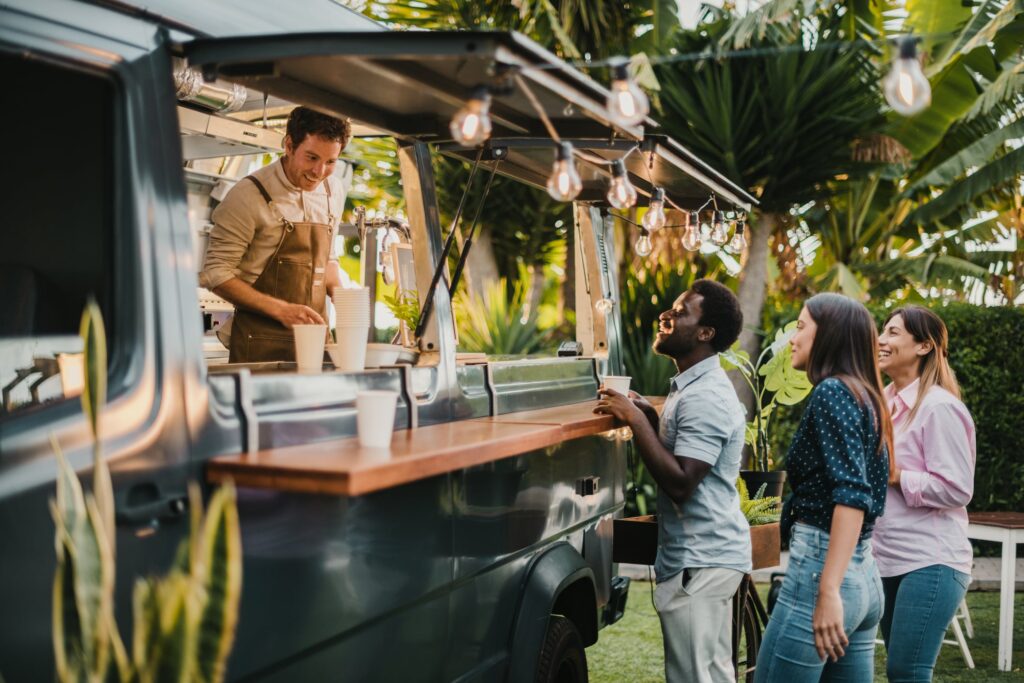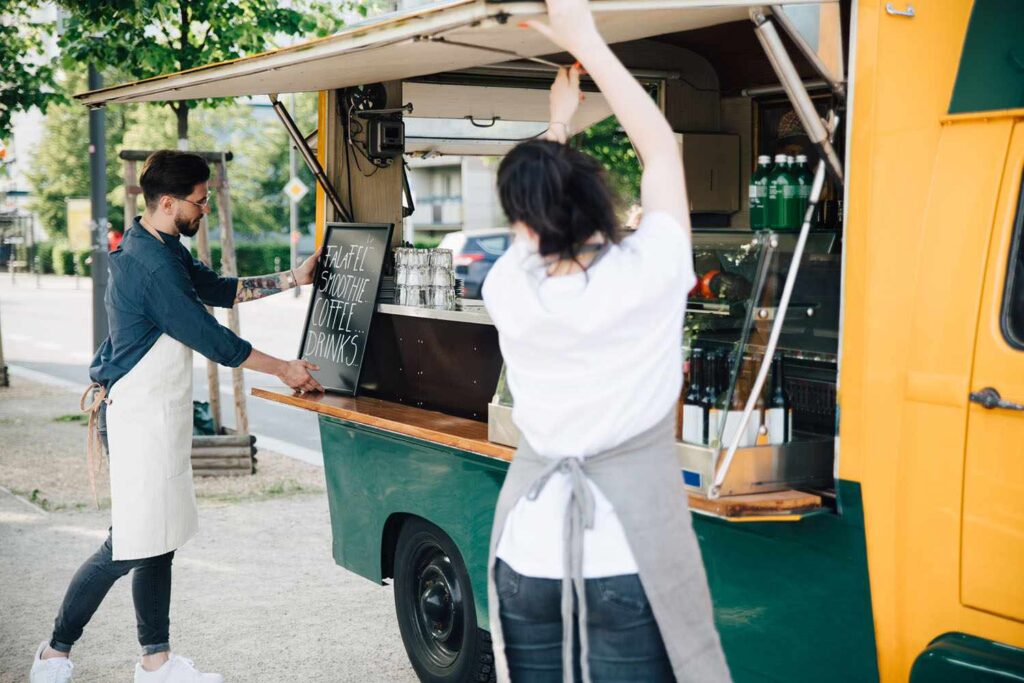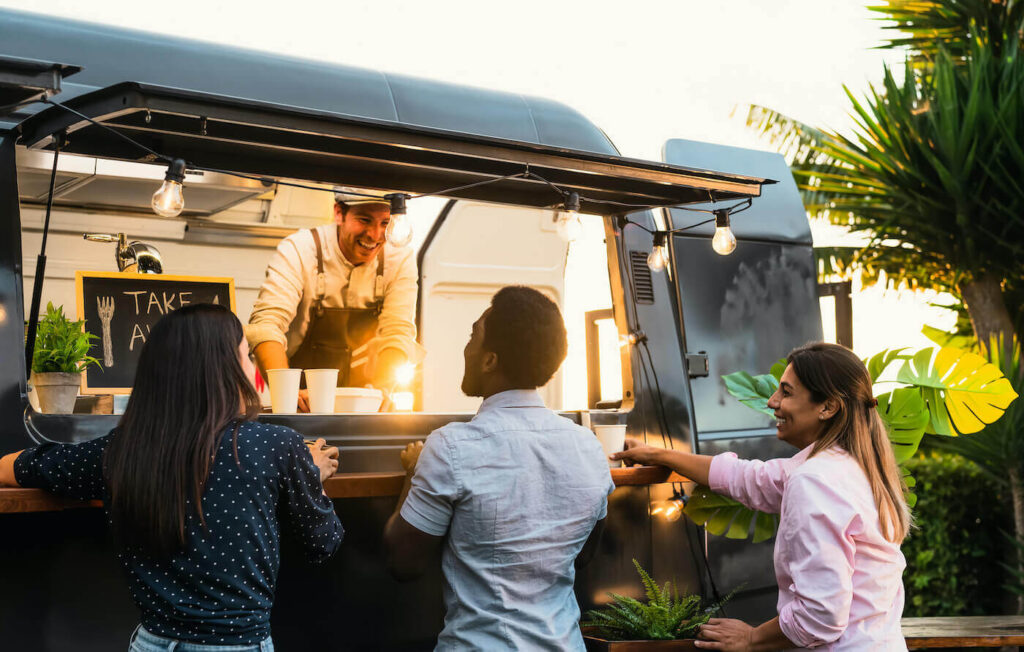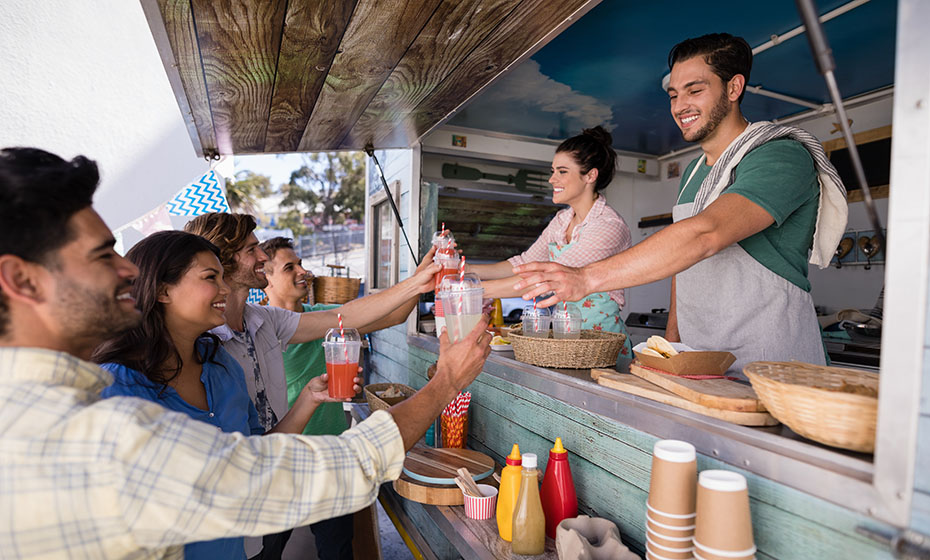
How to Start a Food Concession Trailer Business
Starting a food concession trailer business has become an increasingly popular choice for entrepreneurs. It offers a flexible and relatively low-cost way to provide delicious food at various events and locations. If you’re interested in getting into the food trailer business, here are some guidelines to help you kickstart this exciting and rewarding venture.
- The Concept of a Food Trailer:
A food trailer is a mobile kitchen on wheels, typically attached to a towable trailer or truck. It allows you to prepare and serve a variety of food items directly to customers. Food trailers offer the advantage of mobility, enabling you to cater to different locations and target diverse customer bases. They come in various sizes and designs, allowing you to customize and optimize your setup according to your specific culinary offerings.

- Developing a Detailed Food Truck Business Plan for Your Food Trailer Business:
To set your food trailer business on the path to success, it’s crucial to create a comprehensive business plan. Here are some key steps to consider:
a. Market Research: Identify your target market, understand their preferences, and analyze the local competition. Determine the demand for your food concept and assess the potential profitability.
b. Menu Development: Craft a menu that showcases your unique culinary offerings and caters to your target audience. Consider factors such as pricing, ingredient sourcing, and seasonal variations.
c. Location Selection: Research and identify high-traffic areas, events, or venues where you can operate your food trailer. Secure necessary permits and licenses to ensure compliance with local regulations.
d. Financial Planning: Outline your startup costs, including the purchase or lease of a food trailer, equipment, inventory, marketing expenses, and working capital. Develop a pricing strategy to maximize profitability while remaining competitive.
e. Marketing and Branding: Define your brand identity, including your business name, logo, and overall theme. Create a marketing plan encompassing social media presence, website development, and partnerships with local businesses or event organizers.
f. Operations and Staffing: Determine the operational workflow, hours of operation, and staffing requirements. Consider training needs, food safety regulations, and customer service standards.

- Considerations when Starting a Food Trailer Business:
a. Legal and Regulatory Compliance: Familiarize yourself with the local health department regulations, permits, and licenses required for operating a food trailer. Ensure that you adhere to food safety standards and maintain proper hygiene practices.
b. Equipment and Supplies: Invest in quality cooking equipment, refrigeration units, storage containers, and utensils to ensure efficient operations. Source ingredients from reliable suppliers and maintain appropriate inventory levels.
c. Branding and Marketing: Develop a strong brand presence through eye-catching signage, an appealing menu board, and engaging social media content. Participate in local events, collaborate with other businesses, and actively seek customer feedback to build a loyal customer base.
d. Customer Service: Provide exceptional customer experiences by delivering high-quality food, maintaining cleanliness, and ensuring prompt service. Foster relationships with customers through friendly interactions and personalized recommendations.

- Essential Checklist for a Food Trailer Business:
a. Food Trailer: Purchase or lease a well-maintained and suitable food trailer that meets your specific needs in terms of size, layout, and equipment.
b. Cooking Equipment: Invest in commercial-grade cooking equipment such as grills, fryers, ovens, and food warmers to facilitate efficient food preparation.
c. Licenses and Permits: Obtain all necessary licenses and permits, including health department permits, business licenses, and parking permits, to operate legally.
d. Insurance: Protect your business with appropriate insurance coverage, including general liability insurance, auto insurance, and workers’ compensation insurance if you hire employees.
e. Menu and Ingredients: Develop a diverse and appealing menu, ensuring a reliable supply chain for fresh and quality ingredients.
f. Financial Management: Set up a system for tracking expenses, managing inventory, and maintaining accurate financial records. Consider using POS (Point of Sale) software to streamline transactions.
g. Safety and Hygiene: Comply with food safety regulations, implement proper hygiene practices, and regularly maintain and inspect your equipment to ensure a safe operating environment.
h. Marketing Materials: Design and print attractive menus, business cards, and flyers to promote your food trailer business effectively.

Starting a food trailer business can be an incredibly rewarding venture, offering the freedom to showcase your culinary skills and connect with a diverse customer base. By developing a detailed business plan, adhering to legal requirements, focusing on branding and marketing, and providing excellent customer service, you can set yourself up for success in this exciting industry.

